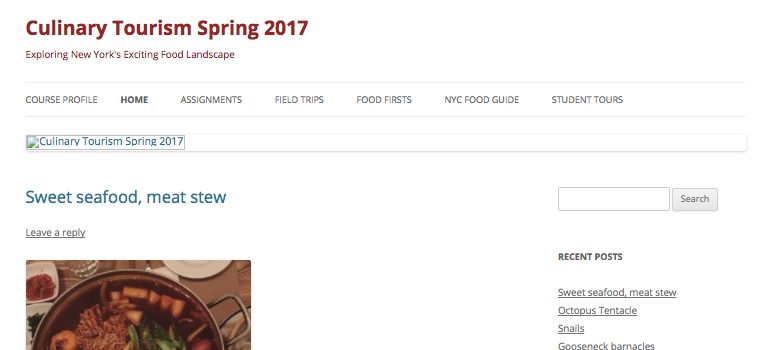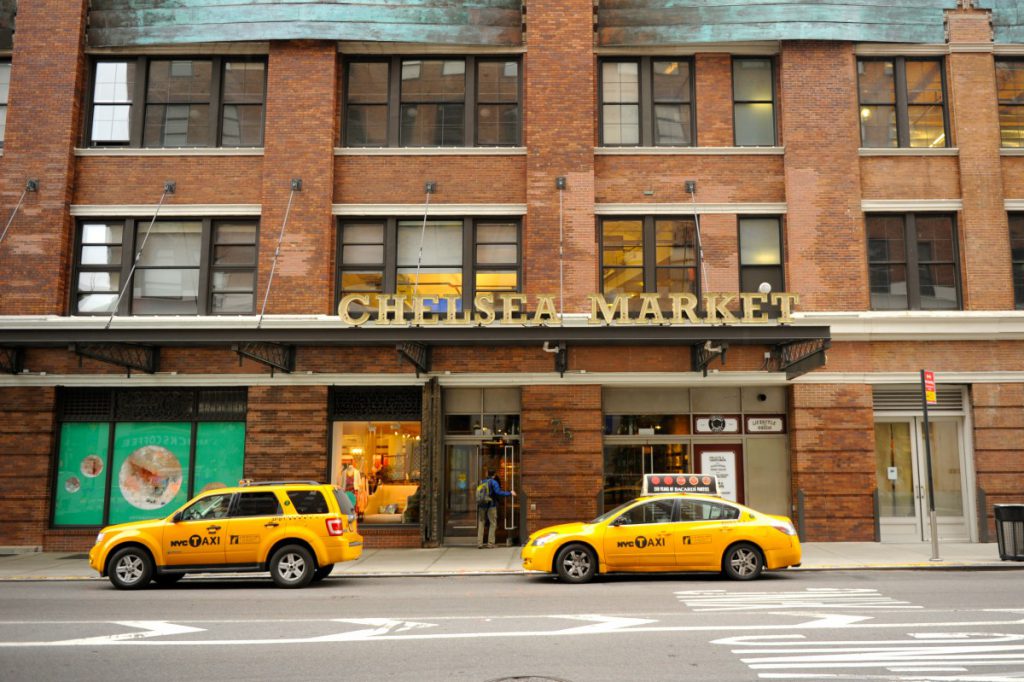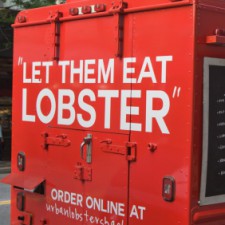 This week we’re shining the spotlight on Professor Krondl’s Culinary Tourism course (HGMT 4989). This course facilitates students exploration of the concept of culinary tourism, and highlights its impact on the tourism industry. The first thing you notice about this course site is that it is easily navigable. In the top menu, students and site visitors can quickly find information on assignments and field trips, as well as download a copy of the syllabus. Organization is essential during the first few weeks of class, particularly because it sets up student’s expectations of the class and helps them prepare for successful completion of the course.
This week we’re shining the spotlight on Professor Krondl’s Culinary Tourism course (HGMT 4989). This course facilitates students exploration of the concept of culinary tourism, and highlights its impact on the tourism industry. The first thing you notice about this course site is that it is easily navigable. In the top menu, students and site visitors can quickly find information on assignments and field trips, as well as download a copy of the syllabus. Organization is essential during the first few weeks of class, particularly because it sets up student’s expectations of the class and helps them prepare for successful completion of the course.
From the course site, it becomes quickly obvious that Professor Krondl’s course is organized around a series of experiential assignments that get students out exploring the city around them. These assignments are organized around four field trips that take students to different locations across the boroughs of Brooklyn, Manhattan and Queens. These trips are accompanied by brief prompts that ask students to examine the culinary tourism of a particular neighborhood in relation to its historical and contemporary contexts. In the context of these assignments, the course site primarily serves as a place for sharing analytic reflections of their experiences with the class and beyond.
This is a great example of how to use your course site to support your assignments while not limiting them. Here at OpenLab, the objective is not necessarily about what you can do with the technology we’re offering, but how can this technology support you in your pedagogical goals.
For more information and/or to meet with us one on one, attend a workshop or come visit us during an office hour! We also have two upcoming Open Pedagogy events – we hope to see you there!







